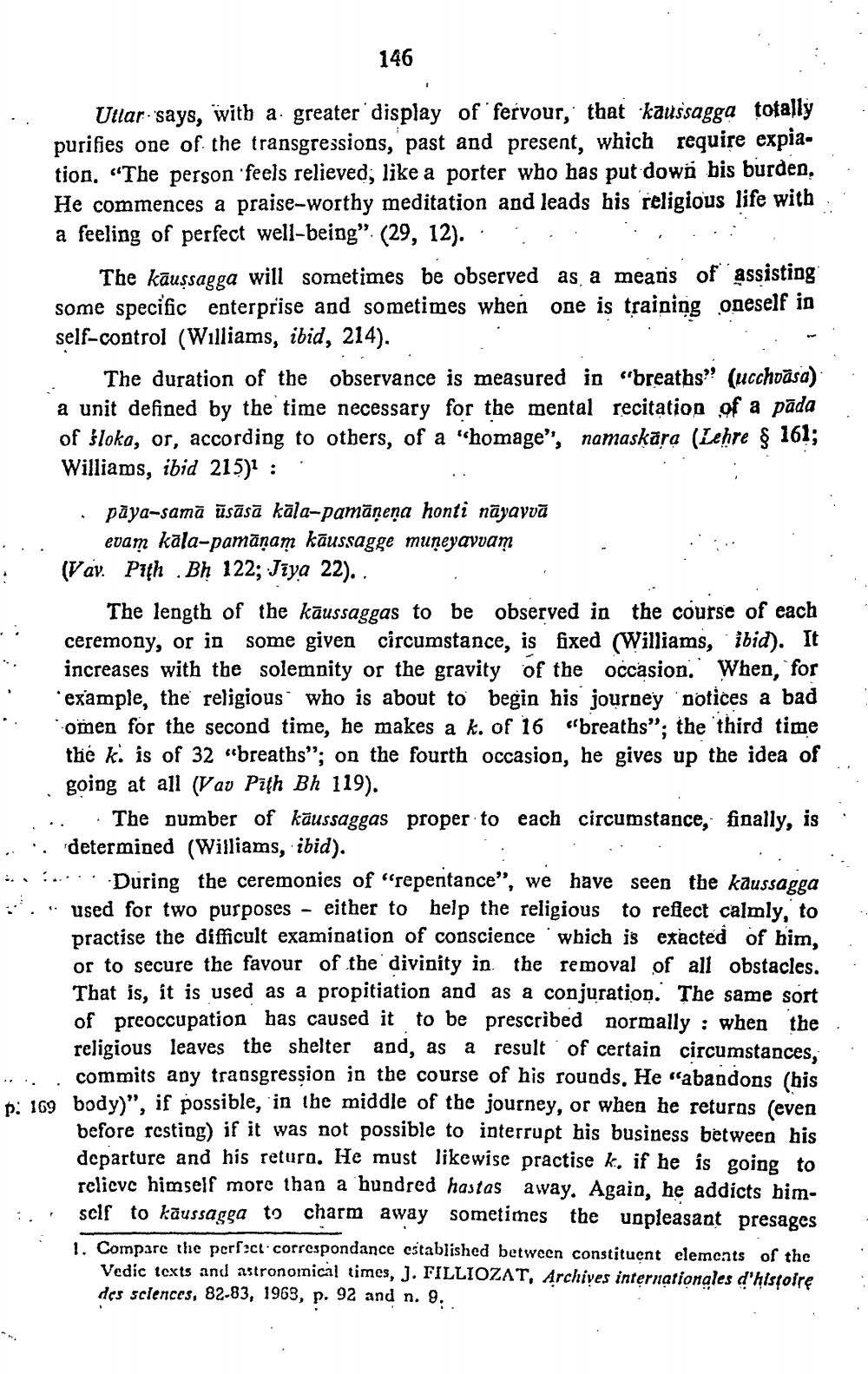________________
146
Utlar says, with a greater display of fervour, that kaussagga totally purifies one of the transgressions, past and present, which require expiation. “The person feels relieved, like a porter who has put dowă bis burden, He commences a praise-worthy meditation and leads his religious life with a feeling of perfect well-being" (29, 12).. ::
The kāussagga will sometimes be observed as a means of assisting some specific enterprise and sometimes when one is training oneself in self-control (Williams, ibid, 214).
The duration of the observance is measured in "breaths” (ucchoasa) a unit defined by the time necessary for the mental recitation of a pāda of bloka, or, according to others, of a "homage', namaskara (Lehre § 161; Williams, ibid 215)' :
pāya-samā ūsāsā kāla-pamāņeņa honti nāyayvā
evam kala-pamānam kāussagge muneyavvam (Vav. Pith Bh 122; Jiya 22).
The length of the kāussaggas to be observed in the course of each ceremony, or in some given circumstance, is fixed (Williams, ibid). It increases with the solemnity or the gravity of the occasion. When, for 'example, the religious who is about to begin his journey 'potices a bad omen for the second time, he makes a k. of 16 “breaths"; the third time the ki is of 32 "breaths"; on the fourth occasion, he gives up the idea of
going at all (Vav Pith Bh 119).
.. . The pumber of kaussaggas proper to each circumstance, finally, is : .. determined (Williams, ibid). ....... During the ceremonies of "repentance", we have seen the kaussagga *.used for two purposes - either to help the religious to reflect calmly, to
practise the difficult examination of conscience 'which is exacted of him, or to secure the favour of the divinity in the removal of all obstacles. That is, it is used as a propitiation and as a conjuration. The same sort of preoccupation has caused it to be prescribed normally : when the
religious leaves the shelter and, as a result of certain circumstances, .....commits any transgression in the course of his rounds. He "abandons (his 169 body)", if possible, in the middle of the journey, or when he returns (even
before resting) if it was not possible to interrupt his business between his departure and his return. He must likewise practise k. if he is going to relieve himself more than a hundred hastas away. Again, he addicts himself to kāussagga to charm away sometimes the unpleasant presages 1. Compare the perfect correspondance established between constituent elements of the
Vedic texts and astronomical times, J. FILLIOZAT, Archives internationales d'histoire des sciences, 82-83, 1963, p. 92 and n. 9.




